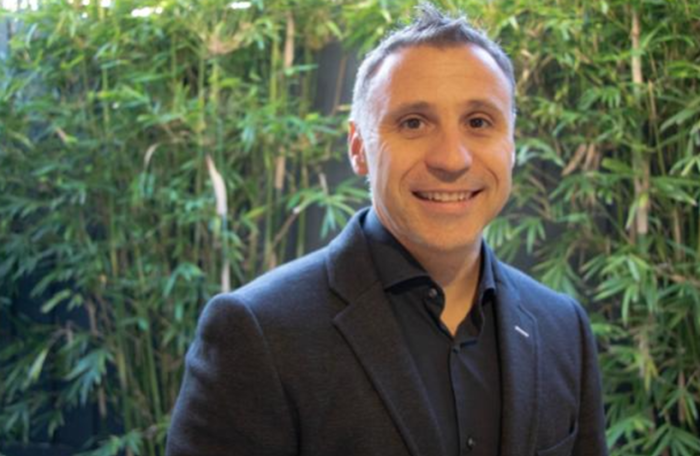Why a modern HR mindset is key to future-proofing businesses

Long-standing trends affecting businesses and employees all over the world have accelerated across the human, digital, and physical layers. We have seen major evolutions on both customer and employee expectations. People today expect more from their companies, particularly in the diversity and inclusion space, and those who do not rise to the challenge face a potential talent drain.
Vaccine mandates, the great resignation, and the pivot to a hybrid work model have contributed to the list of challenges for business leaders. This is compounded by external factors such as supply chain disruptions, and the growing emphasis on sustainability.
These trends mean that today’s CHROs need to accelerate business transformation and elevate HR functions’ ability to enable talent outcomes. The good news is that Accenture’s research has demonstrated that it makes good business sense to do so, with organisations that successfully unlock their people’s full potential standing to gain upwards of 5 percent revenue growth.

“Today’s CHROs need to accelerate business transformation and elevate HR functions’ ability to enable talent outcomes.” Gaston Carrion, Accenture.
The case for the modern HR mindset
Talent management approaches have typically been built around the needs of the organisation, rather than the people joining it, making it time for leaders to rewrite a script that builds trust based on the fundamentals of what matters most to their people.
To do this, leaders must embrace a modern HR mindset. And we are already seeing this; 50 percent of CXOs today have fully embraced the responsibility to support people’s holistic needs, compared to just 35 percent prior to the pandemic. But what does a modern HR mindset entail?
It means moving beyond efficiency and process execution to see the future differently. Embedding sustainability into the company DNA and involving employees every step of the way. Creating experiences grounded in care for people and concern for communities while accelerating the performance of the business.
Embracing this mindset can help organisations achieve several goals simultaneously: Enhance relationships with workers based on trust and accountability, accelerate business performance, and create positive societal change.
The five pillars of modern HR
So, how can companies embed the modern HR mindset into their team? Accenture has identified five pillars that set companies apart from their peers, and position them to succeed:
1. Focus on Net Better Off
Change starts from the top. This means that in addition to looking at financial performance, leaders must consider social and environmental factors. In other words, they need to focus on the triple bottom line and evaluate their performance in a broader perspective.
This will entail ensuring that employees are Net Better Off, a framework which Accenture has identified to help companies unlock their people’s full potential. Through meeting the needs of employees across six key dimensions: emotional and mental, relational, physical, financial, purposeful, and employable, leaders can not only unlock their people’s potential, but also business potential.
2. People strategy and transformation
Ensuring that the company has enough talent with the right skills will also be a priority in modern HR. In addition to identifying the next generation of skills, leaders will have to approach talent acquisition with a strong focus on these skills, and curate experiences for existing employees that further develop their potential for sustained competitiveness.
They also must improve enterprise scale while delivering localised focus, and make sure that teams are fully optimised, using capability+ as a transformation catalyst.
3. Organisation development for an agile organisation
The HR structure will also have to be augmented to pivot to an operating model that works for their people. Agility and collaboration will be at the heart of strategising for organisation development, and leaders will have to develop dynamic cross functional connections to enable network development for talent, expertise, and information flows. They will also have to place an emphasis on organisational effectiveness to ensure accountability between teams.
4. Build digital fluency
To build an intelligent organisation, digital fluency will emerge as a core capability. Leaders need to optimise digital technologies for frictionless work, using data and intelligent guidance for better decision-making, and improve human and technology work and interactions.
5. Develop an experience-driven employee value proposition (EVP)
Finally, leaders must create the conditions for successful and meaningful work. This means prioritising an end-to-end EVP-driven experience, allowing for flexibility and personalisation, and adopting a customer centric (CX) / product management (PX) approach to HR service development.
Shaping the future of HR
At the end of the day, modern HR is no longer a function, but an ethos that focuses on designing and shaping work and work experiences that unleash the full potential of individuals, teams, organisations, and communities. Our workforce and communities are counting on CHROs — in collaboration with the rest of the C-suite — to support them and emerge stronger from this crisis. The future of HR depends on how we seize this moment.
About the Author: Gaston Carrion is Managing Director – Talent & Organisation / Human Potential, Asia Pacific, Africa, and Middle East Lead, Accenture. Join him at HR Leadership Series: Live, which is taking place at Marina Bay Sands Singapore on Thursday, September 8. His keynote address, titled, Modern HR: Unleashing Human Ingenuity, is taking place from 10.05am-10.30am (SGT).



